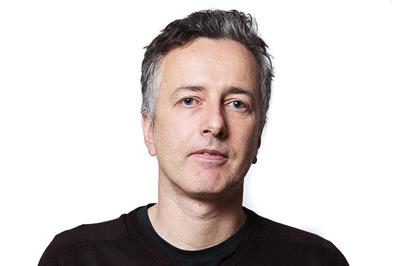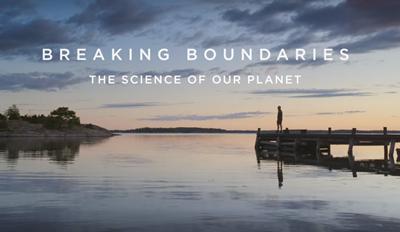Southampton engineering graduate sets out roadmap to halt planetary emergency

University of Southampton graduate Owen Gaffney has warned that the “next decade will be decisive for our civilisation” in a new book that reveals the full scale of the environmental crisis now facing humanity.
The BEng Aeronautics and Astronautics alumnus is the co-author of Breaking Boundaries: The Science of our Planet, a hard-hitting book that uncovers the many pressures that humans are placing on our planet and outlines actions that can stabilise Earth’s life support system.
The book, which includes a foreword by environmental campaigner Greta Thunberg, is also the subject of a new Netflix documentary narrated by Sir David Attenborough.
Since graduating from Southampton in 1991, Owen Gaffney has become a science writer and global sustainability analyst based at the Stockholm Resilience Centre, Potsdam Institute for Climate Impact Research and the Global Commons Alliance.
“We are at a critical moment in history and this next decade will be decisive for our civilisation,” he says. “Do we bequeath our children a dangerously destabilised planet, or do we bequeath a healthy, resilient biosphere and relatively stable planet?
“These are the options right now but I am optimistic we will act at scale,” he continues. “The door is still open and will become planetary stewards. What do people need to do? Vote for parties that value science and value the future. Consume with purpose. Become nature positive. Give back. The big paradigm shift is not ‘tread lightly’ it is regenerate.”

As well as highlighting the stressors inflicted on the planet, Breaking Boundaries provides hope by illustrating tangible solutions. Owen and his co-author Johan Rokstrom, a leading global sustainability scientist, see the book as a call to action for the whole planet.
“Planetary stewardship is growing and we predict the next decade will see the most rapid transformation in history but will it be fast enough to avoid the worst catastrophes?,” Owen asks. “As a species, we humans tend to do the right thing but only after we’ve exhausted other alternatives.”
When Owen graduated from the University of Southampton, one thing that really interested him was the global environment.
“This was the early 1990s and Earth observation satellites were starting to bring back startling images of the state of the planet,” he recalls. “I remember seeing NASA’s first ‘Earth At Night’ composite image and just being blown away. This literally changed my perspective, my worldview, in a single breath.
“When I finished my degree I felt a bit lost. I did not want to work in the aerospace industry because this is often linked to the military. I took the scenic route for a while. I wrote, I worked in restaurants, I started teacher training, I did a film course. I then worked in film and video production and became a science writer at the moment climate change was rising to the top of the political agenda.
“Now, we are on the brink of a crucial moment in history so Breaking Boundaries is an essential work that presents a vision of our contemporary world based on a new understanding of our rainforests, ice sheets, oceans, atmosphere and rich diversity of life,” he concludes.
The book, Breaking Boundaries: The Science of our Planet is published by Dorling Kindersley.
The Netflix documentary, of the same title and narrated by Sir David Attenborough, is now available on the streaming service.